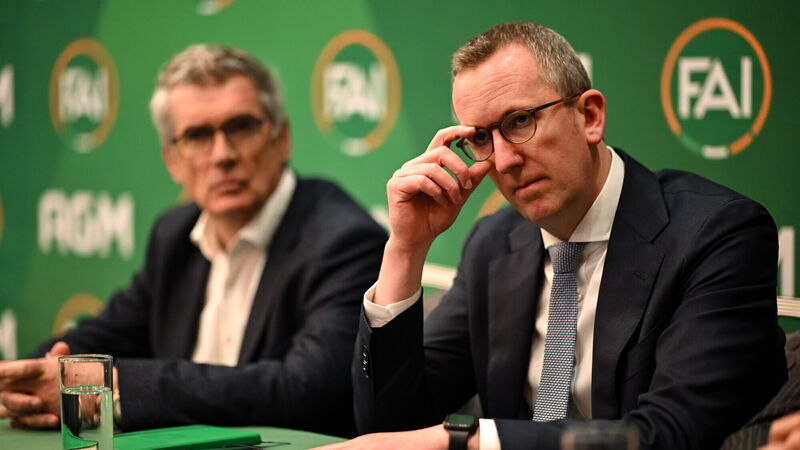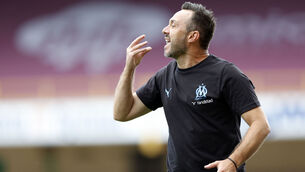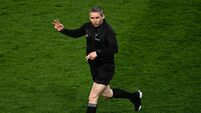'Finance is the not the most important factor' - FAI CEO defends redundancy sweep

FAI chief executive officer David Courell and FAI independent chairperson Tony Keohane, left, during a press conference following the 2025 annual general meeting of the Football Association of Ireland at the Carlton Hotel in Blanchardstown, Dublin. Photo by Stephen McCarthy/Sportsfile
The FAI insist their cull of 60 employees isn’t being primarily driven by the financial pressures of servicing debt of almost €40m.
Because the call for voluntary leavers among the 255-workforce reached 42, exceeding the target of 30, each will receive a €5,000 bonus on top of their four weeks’ pay per year of service.











